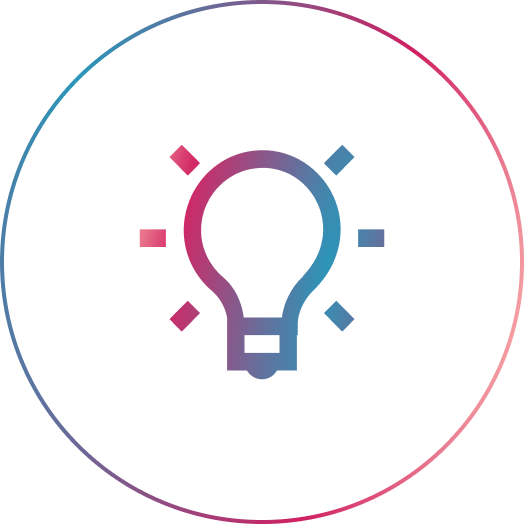When it comes to B2B marketing, companies often face one persistent question: should we build or grow our own in-house marketing function, or outsource to a b2b marketing agency? The right answer depends on many variables including budget, existing internal capabilities, growth ambitions, and how fast you need results.
When making this choice, it’s important to weigh the pros and cons of each path along four key dimensions: ROI, scalability, specialization, and flexibility and to draw on insights from other industry professionals to get a comprehensive view.
What We’ve Seen at Three29
Before comparing in-house teams and agency partners, it’s worth acknowledging that every organization has its own unique mix of goals, budgets, and internal strengths. Company size, available resources, and growth priorities all shape what kind of marketing model makes the most sense. Over the years, we’ve worked with businesses that have one-person marketing departments and others with full in-house teams.
The lessons are remarkably consistent: both paths can work, but each comes with trade-offs that affect ROI, scalability, and long-term growth.
The Case for In-House Marketing
In-house marketing teams often have the advantage of proximity. They live and breathe the brand every day, which creates an instinctive understanding of the company’s product, customers, and culture. Feedback loops are faster, collaboration with sales is tighter, and brand consistency is easier to maintain. When a business already has strong internal leadership and a defined marketing strategy, in-house execution can build incredible momentum.
That said, we also see the limits. Smaller teams stretched across multiple disciplines, from content and design to analytics and paid media, can dilute focus and slow progress. Without the bandwidth, experience, or access to specialist tools, even the most capable in-house teams can hit a growth ceiling.
The Case for Agency Partnership
Partnering with a marketing agency introduces external expertise, proven frameworks, and scalability that’s hard to replicate internally. Agencies bring teams of specialists like strategists, designers, developers, SEO experts, and media buyers who operate as a cohesive extension of your business. For B2B companies focused on sales growth and lead conversion, this mix of perspectives can accelerate outcomes and uncover opportunities an internal team might miss.
The trade-off, however, is alignment. Agencies must invest time in understanding your product, culture, and voice to ensure every campaign reflects your brand authentically. The best partnerships function like a seamless extension of your team, not a separate vendor.
A Hybrid Approach Can Create the Best of Both Worlds
In practice, many successful companies find that the strongest results come from a hybrid approach where core strategy and brand leadership is led in-house while leveraging agency talent for specialized execution or large-scale campaigns. This structure preserves internal control while giving access to deep expertise, advanced tools, and flexibility when priorities shift.
At Three29, we see this hybrid model as the future of modern B2B marketing. It’s what allows organizations to stay lean, agile, and aligned without sacrificing creative or technical excellence.
Comparing the Two: ROI, Scalability, Specialization, Flexibility
Take a look at a breakdown of how a b2b marketing agency stacks up against an in-house marketing team when it comes to ROI, scalability, specialization, and flexibility.
ROI
ROI is the benchmark for every marketing decision. The real question is whether you’ll get more value from building internal expertise or partnering with a team built to scale.
In-House Marketing ROI potential
In-house marketing teams benefit from deep product knowledge and close collaboration with sales and leadership, which helps create targeted messaging, consistent branding, and quick feedback loops that improve results. With no agency fees, budgets often go further while maintaining full creative control.
The downside is cost and capacity. Building and managing an in-house team requires major investment in salaries, tools, and training, and smaller teams can become overextended. Without access to specialists in areas like SEO, paid media, or technical integrations, performance can plateau and overall ROI may decline.
B2B Marketing Agency ROI potential
Partnering with a B2B marketing agency gives companies access to experts in Answer Engine Optimization (AEO), Search Engine Optimization (SEO), paid media, content, design, and analytics without the expense of building a full in-house team. Agencies bring advanced tools, workflows, and cross-industry experience that help campaigns launch faster, perform better, and make more efficient use of budgets.
The trade-off is that agencies require upfront investment and time to fully understand your brand and audience. Miscommunication or unclear scopes can slow progress or raise costs, but when an agency operates as a true extension of your team, alignment strengthens and ROI grows.
Scalability
Scalability is how well your marketing efforts can grow, or shrink, in response to changing business needs, market conditions, or budget. In terms of pure scalability, agencies tend to have an edge, especially for companies that are growing rapidly or are uncertain about what the future requires.
In-House Marketing Scalability
An in-house team gives you control over scaling, but scaling an internal team is slow and costly. Hiring and training take time. Each new hire likely needs onboarding and coaching, and if demand dips, you may still carry the fixed costs of full-time staff. There is risk with turnover since losing a key specialist creates gaps.
Marketing Agency Scalability
A B2B marketing agency is typically much more flexible. You can scale up campaigns or tactics more quickly, bring in specialists when needed, and potentially reduce scope during slower periods. Agencies also allow SaaS companies to scale up or down based on their changing needs and budgets.
Specialization
It’s also important to analyze how deep and cutting-edge the marketing capabilities are. For specialized or technical needs therefore, a B2B marketing agency often allows you to access that talent faster and with less risk than hiring and training long-term in-house specialists.
In-House Specialization
With in-house marketing, you can build deep expertise in your product and your market, embedding knowledge of your technology, industry, buyers, and culture. Over time, in-house teams can become highly specialized in how you do things. But initial in-house builds often lack depth in specialist areas.
For example: in advanced paid acquisition, automation, UX/design, or content strategy. In fact, many small B2B companies have one-person or very small content teams. Such teams are symptomatically “generalists” who simply can’t cover all the specialist work.
Agency Specialization
Agencies generally boast more specialization: they often have experts dedicated to different disciplines. Agencies can bring diverse professionals (branding, SEO, web development, paid ads, analytics) all into one team. Also, since agencies work across clients, they see a broad range of strategies, which helps them stay current.
However, the trade-off here is making sure that the agency’s specialist work is tuned to your needs. This may require onboarding, oversight, and good communication so the specialist knows enough about your product, messaging, and audience.
Flexibility
Flexibility refers to how nimble you can be as priorities shift whether that be because of market changes, internal strategies, budgets, or external events.
In-House Marketing Flexibility
In-house marketing offers the advantage of direct control and agility. Teams can adjust priorities quickly as strategies evolve, and with fewer layers of approval, decisions often move faster. Once alignment is established, internal teams can act on feedback immediately, keeping campaigns responsive and consistent with company goals.
The trade-off is that scaling or shifting direction can be slow and expensive. Hiring or replacing full-time employees takes time, and developing new capabilities often requires additional training or recruitment. Larger organizations may also face bottlenecks from internal approvals or risk-averse decision-making, which can limit flexibility and delay execution.
Agency Flexibility
Agencies tend to offer far greater flexibility than internal teams. Without the weight of hiring or HR overhead, they can shift resources quickly, bringing in specialists as needed or scaling down during slower periods. This makes it easier to experiment with new channels, adjust campaigns, and refine strategy in real time as performance data comes in.
However, that flexibility depends on how well the partnership is managed. Agencies need time to understand your business, brand, and team before they can move efficiently. Communication or approval delays can slow execution, and some contracts or retainers may limit how much you can scale work up or down at any given time.
Who Drives More ROI: In Practice?
Putting it all together, here are some scenarios when one option tends to outperform the other in ROI terms:
- If your organization is small/medium, early in its growth, or has tight budget constraints, then hiring a b2b marketing agency often yields higher ROI per dollar spent because you avoid many fixed costs, access specialists, ramp faster, and can shift tactics without needing to hire or retrain.
- If your organization has complex, technical products, long sales cycles, or very strict branding and domain knowledge demands, then in-house marketing, or a hybrid model, may provide a higher long-term ROI because of the internal knowledge, alignment, and brand consistency.
- If you anticipate rapid shifts in marketing needs such as new channels, big product launches, or scaling up or down rapidly, the flexibility and scalability of an agency tend to yield more favorable ROI.
- Over time, a hybrid approach (in-house core team + agency specialists) often gives the best of both worlds. Several of the sources point out this blended model: you keep the core brand voice, internal alignment, product knowledge in-house; supplement with agency specialists for execution, campaign acceleration, or new channel experiments. This can also be called “a blended approach” as often the most cost-efficient over time. It is common for clients to often keep internal marketing teams plus have agency partnerships.
Key Trade-Offs & Risks to Watch
When making a decision, keep in mind some of the pitfalls on both sides:
- For in-house teams: cost overruns like salaries, benefits, overhead, tools, gaps in specialized knowledge, risk of stagnation (lack of fresh ideas/new perspectives), and turnover disruptions.
- For agencies: misalignment on brand/product nuance, possible communication delays, risk of dependency (if the agency holds too much institutional knowledge), contract or retainer constraints, and sometimes less direct control.
Recommendations for Three29 Clients
Given the concerns many B2B companies face, longer sales cycles, highly technical offerings, need for measurable ROI, and often constrained budgets, here are some recommendations we might suggest to clients:
- Start with clarity on goals and metrics: Before deciding, define what ROI looks like for you: lead generation vs. awareness vs. sales velocity vs. customer retention. This clarity helps you decide how to allocate resources.
- Audit internal capabilities: If you already have an internal team, what are its strengths? Where are the gaps? If most gaps are specialist roles (SEO, paid media, automation, creative design), bringing in an agency or external partner for those may make more sense.
- Consider a blended model: Many companies do best by keeping core in-house roles and pairing them with agency resources for specialist needs or to handle scaling bursts. This gives control + brand consistency + cost control, while also accessing specialized skills and flexibility.
- Keep communication and integration tightly managed: Whether using an agency or building internally, ensure that departments (sales, product, customer success) are aligned with marketing, with shared metrics and frequent feedback. If you’re using an agency, set up clear roles, expectations, reporting cadence, and touch points.
- Be ready to adjust: As your company scales, or as market conditions change, be open to shifting from one model to another (more in-house or more agency) or adjusting proportions of each.
So, who drives more ROI?
Is the answer a b2b marketing agency or an in-house marketing team? The truth is, there is no one-size-fits-all answer, but based on recent industry evidence:
- For many B2B companies, especially those earlier in growth, or those needing flexibility and specialized skills quickly, an agency often delivers stronger ROI faster.
- For companies with established products, significant internal knowledge, strict branding/control needs, and the ability to sustain fixed costs, in-house can yield strong returns, especially over the long term.
- The sweet spot for many is a hybrid approach that merges internal presence with external expertise.
At Three29, we believe in evaluating each organization’s unique mix of resources, culture, and long-term goals. We help clients map out which model, or mix of models, will likely deliver the greatest ROI, scalability, specialization, and flexibility, and then build a plan to execute it. When you’re ready to make the choice between in-house or agency marketing, contact us to book your free strategy meeting.




